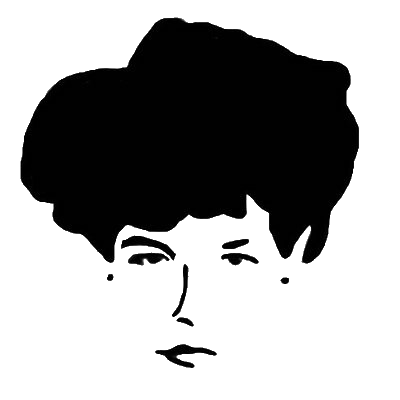Beans
Rick got it: the problems of two little people don’t amount to a hill of beans in this crazy world, but have you seen the product of even a small inadequate bean-hill, a half-hill of beans? the kitchen covered in knobby green worms, metaphorical ones I mean, and riding along them, falling unfindably onto the speckled oilcloth, real worms, also green, inchworms, buckling them- selves by centimeters, clinging to the beans invisibly as you wash them, in the boiling pot bleaching yellow, only less awful than if they remained undetected. One hill of beans and it’s beans all summer, toughening, growing hairs in the August sweats, proliferating beyond hope of consumption, beans with knees and elbows, beans with crooks, dragonous beans, slithering out of the basket like legs on a green centipede, withstanding your attempts to put it down; beans that could escape, but refuse to—
And that’s just our kitchen. All over town think of the gardens flooding people out: fools who planted zucchini and didn’t have the sense to eat the flowers; they’re frying them, shredding them, sweating and frantically beating at the batter of zucchini bread—Somewhere someone’s left town for the weekend and sunflowers are shedding their seeds all over the garden, pumpkins are rolling inexorably onto the lawn, tomatoes are falling with terrible splatters to the soil at the base of their stakes— We’re doing the only thing possible, we’re letting them rot, returning the beans to the compost, where they’ll reseed themselves, come up an all-too-well-fertilized dragon’s tooth army next spring— but anything’s better than canning, boiling them fast, to kill off along the length of their invisible unswallowable hairs the lurking armies of bacilli waiting for the dark of the cellar to start to mature.
One Size Fits Most
In our village we have one face. The old men drape their wrinkles over it like shawls. On children the eyes seem too large, but they see through it. It’s triangular, spare, adaptable. We keep it near the well, in a reed basket inside an earthenware box. In the rains when we take it up it feels moist, like a leaf. In the dry season it has a light powder of dust. Everyone who wears it adds some flourish. My closest cousin has a mole she places just so on the left cheek. My grandfather cinches the eyes to a squint. I’ve tried moving its mouth quickly, keeping it always in a slight smile, keeping it still; lately I wrap it in a scarf.
Today everybody needs it. The young men are going, all of them, to the city, to take the exams which determine what faces they will wear in the future. For now, they’re all crowded in the one room of the concrete train station, wearing our face. The mothers stand outside, waiting for the young men to go, to wave them off, to wish them luck, to pick up and put on the face when they leave it behind.
Old Joke
An old man goes to his doctor and says, Doctor, how long have I got? (This joke is to be told in a descending intonation, with echoes of the man behind the fish counter calling number ninety two, and the whirr of the coffee grinders, and the tinny smell of refrigeration holding in check the thousands of dollars of imported cheese; this joke contains gold-wrapped three-pound bars of chocolate and apricot jam and rye bread which can be sliced or left whole, or sold by half loaves if there’s no one else at home; when it’s done being told, this joke will be getting on the crosstown bus and riding with big plastic bags lined with paper through the park on 79th Street to the east side where the old women wear white sneakers beneath their long mink coats; this joke will walk four blocks north from the bus stop through the sliding glass doors, nodding to the doorman, up to the apartment it’s lived in for twenty-seven years, alone for the last eight, where it will wrap cheese and halvah and chocolate and a flat of smoked salmon in yesterday’s Times to overnight to a girl in college who is by the look of her starving) And the doctor says, well, I’m not saying you’re going to die, but don’t buy any green bananas.
